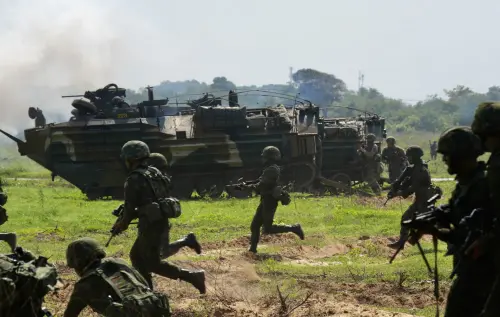Saudi King Abdullah has shuffled his intelligence command at a critical juncture in the Middle East, bringing back the kingdom’s most experienced international troubleshooter, Prince Bandar bin Sultan.
On the eve of the holy month of Ramadan, the king put Bandar in charge of Saudi Arabia’s foreign-intelligence service. Abdullah elevated its former chief, and his half-brother, Prince Muqrin, to a senior-adviser job. Muqrin and Bandar are close friends.
Bandar served as ambassador to Washington for years. He helped Reagan defeat the Soviets in Afghanistan. He helped Bush defeat Saddam in Kuwait. He helped Clinton try to make peace between Israel and the Arabs. And he helped Bush fight al Qaeda. He is a master of clandestine diplomacy and secret deals. In 1989, he negotiated a secret missile deal with China that shocked Washington when it found the missiles were already deployed in secret bases in the Arabian desert.
He has been out of sight most of the last decade. But the king has used him for occasional top-secret missions. When the Arab Spring began and Mubarak fell, the king sent Bandar to Pakistan and China to make certain those two critical Saudi allies were still fully behind the royals.
Now the Saudis see an Arab world in transition from decades of lethargic stability to a chaotic future. The kingdom has intervened with force to stop a Shia revolt in Bahrain, used diplomacy to ease out Yemeni President Salih, and backed the revolts in Syria and Libya against old hated enemies. The Saudis hope the overthrow of Bashar al-Assad will deal a body blow to Iran and Hezbollah. The kingdom wants to make an alliance with the new regime in Egypt and just hosted a visit by President Morsi.
When the Arab Spring began and Mubarak fell, the king sent Bandar to Pakistan and China to make certain those two critical Saudi allies were still fully behind the royals.
At home, the Saudis face mounting unrest among their own Shia minority in the oil-rich Eastern Province. The al Qaeda threat remains deadly in Yemen.
Saudi intelligence is a vital U.S. ally in the fight against al Qaeda. Twice in the last two years, the Saudis foiled al Qaeda plots to attack American cities. Now it will be Bandar’s job.
Bandar’s first and most urgent task will be Syria. The Saudis want Asad gone sooner not later and Bandar will get the rebels more arms. Its deeply ironic since Bandar played an important role in helpng Bashar consolidate power when his father Hafez died in 2000. Bandar pressed Syria’s generals then to accept the young man as tough enough for the job. Now he must be Bashar’s undoing.
The Brookings Institution is committed to quality, independence, and impact.
We are supported by a diverse array of funders. In line with our values and policies, each Brookings publication represents the sole views of its author(s).



Commentary
Op-edThe Return of Prince Bandar: Saudi’s New Spy Chief
July 23, 2012